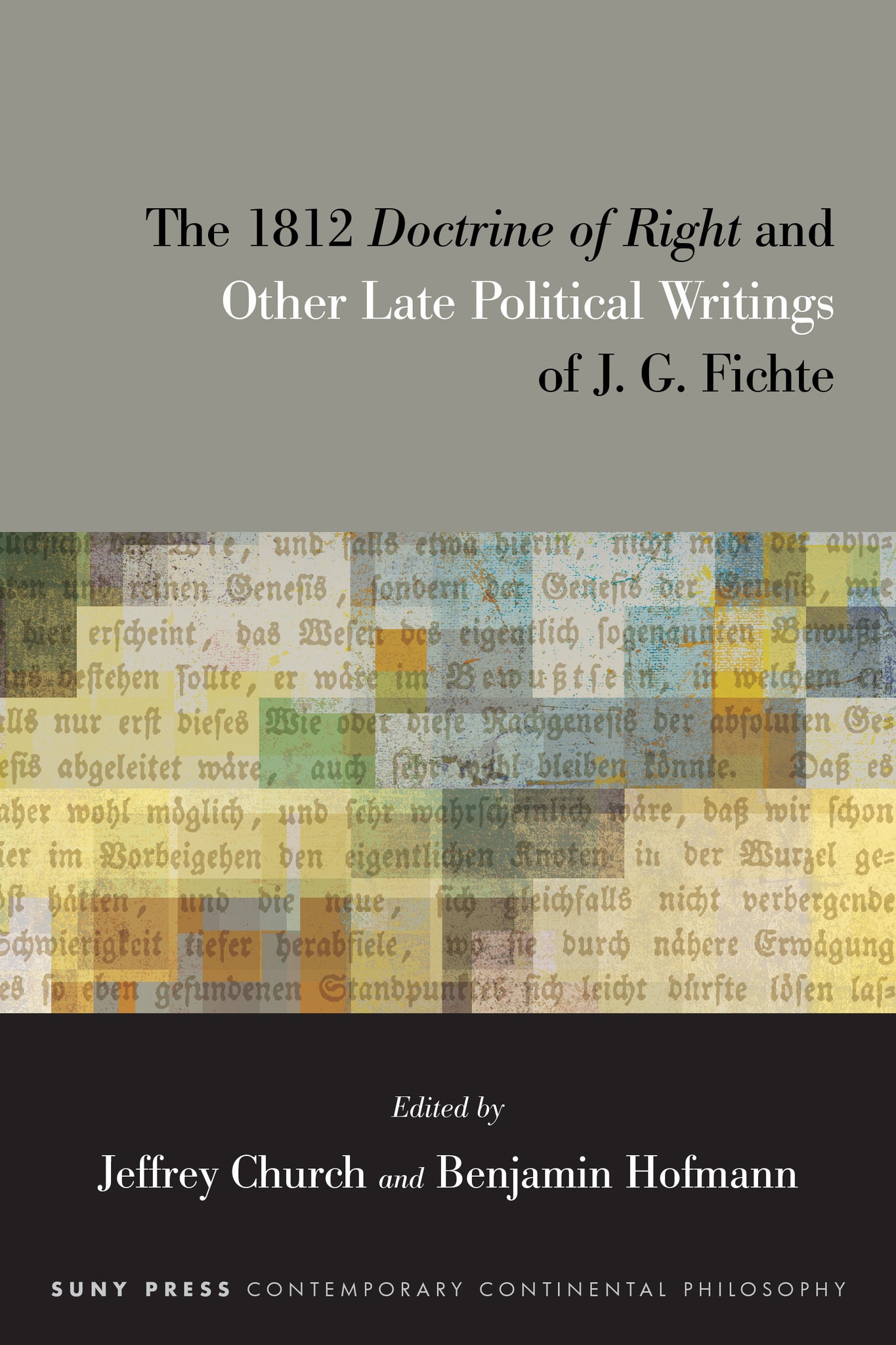We're sorry. An error has occurred
Please cancel or retry.
The 1812 Doctrine of Right and Other Late Political Writings of J. G. Fichte

Some error occured while loading the Quick View. Please close the Quick View and try reloading the page.
- Format:
-
01 February 2026

The first translation of a major work of political philosophy by J. G. Fichte, as well several additional works that help contextualize some of his other widely misunderstood translated work.
After moving from Jena to Berlin, J. G. Fichte continued to develop and revise his political philosophy. The 1812 Doctrine of Right and Other Political Writings contains most of the major works by Fichte in this period. It includes several pieces, unpublished in Fichte's lifetime, that help contextualize his most well-known work, The Addresses to the German Nation (1807–1808). In addition, this volume contains two lecture series from Fichte's return to teaching at the University of Berlin. The first, Lectures on the Vocation of the Scholar (1811), revisits the topic of the purpose of the philosophical life that Fichte had discussed several times prior in his career. The second, The Doctrine of Right (1812), amplifies and revises his theory of justice, law, and contract that he had originally published in his Foundations of Natural Right (1797–1798).


"This is a welcome and timely group of translations, and I expect that it will impact English-speaking Fichte scholarship in significant ways. The translators have expertly rendered five important texts from the final six years of Fichte's life, including his lectures on the science of right from 1812 and a multipart dialogue on patriotism composed during the high point of Napoleon's conquests. This volume makes possible a more complete understanding of Fichte's social and political philosophy." — Benjamin D. Crowe, Boston University



